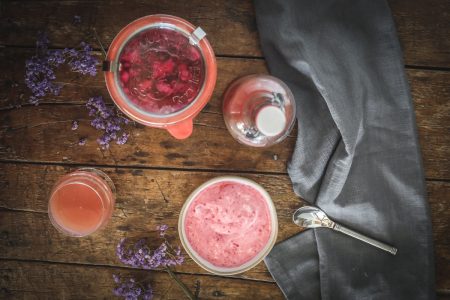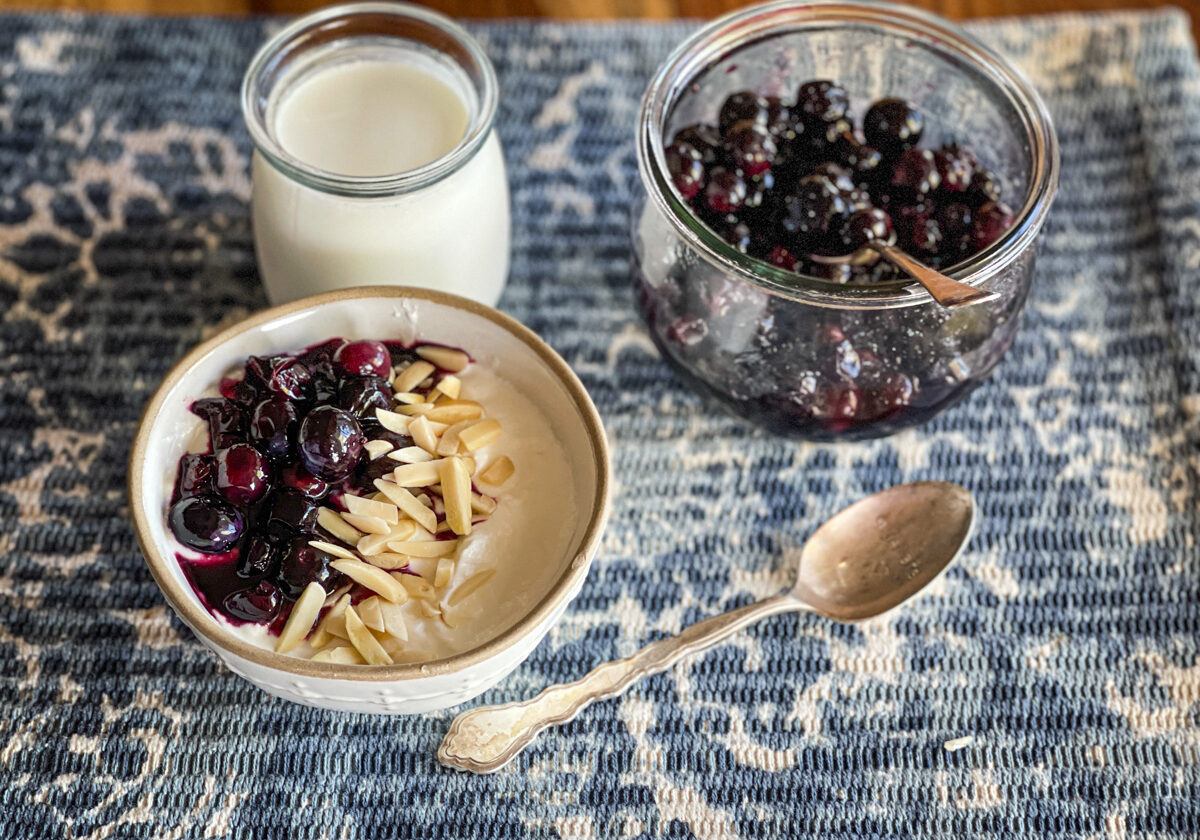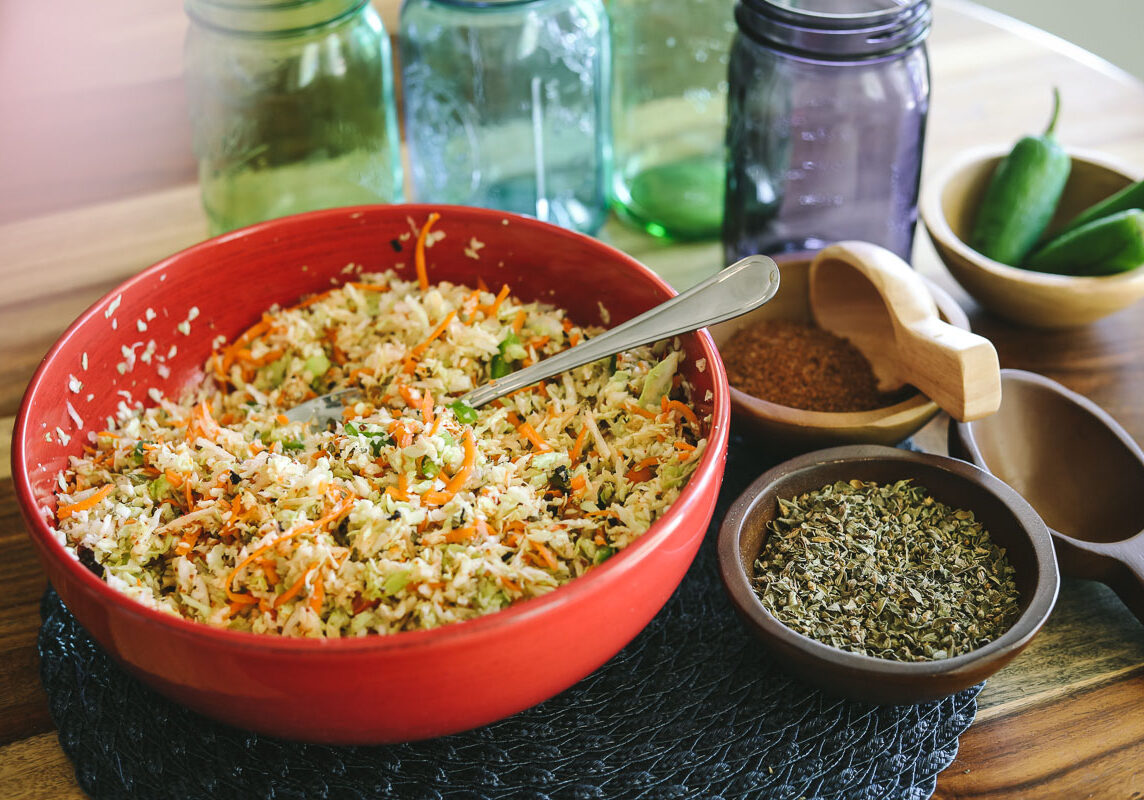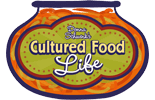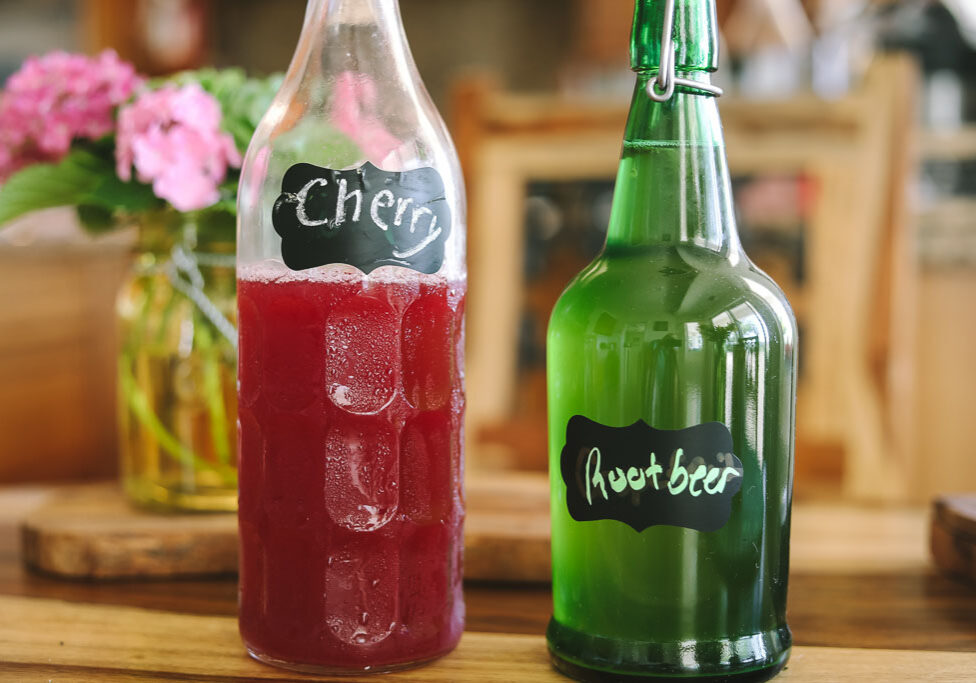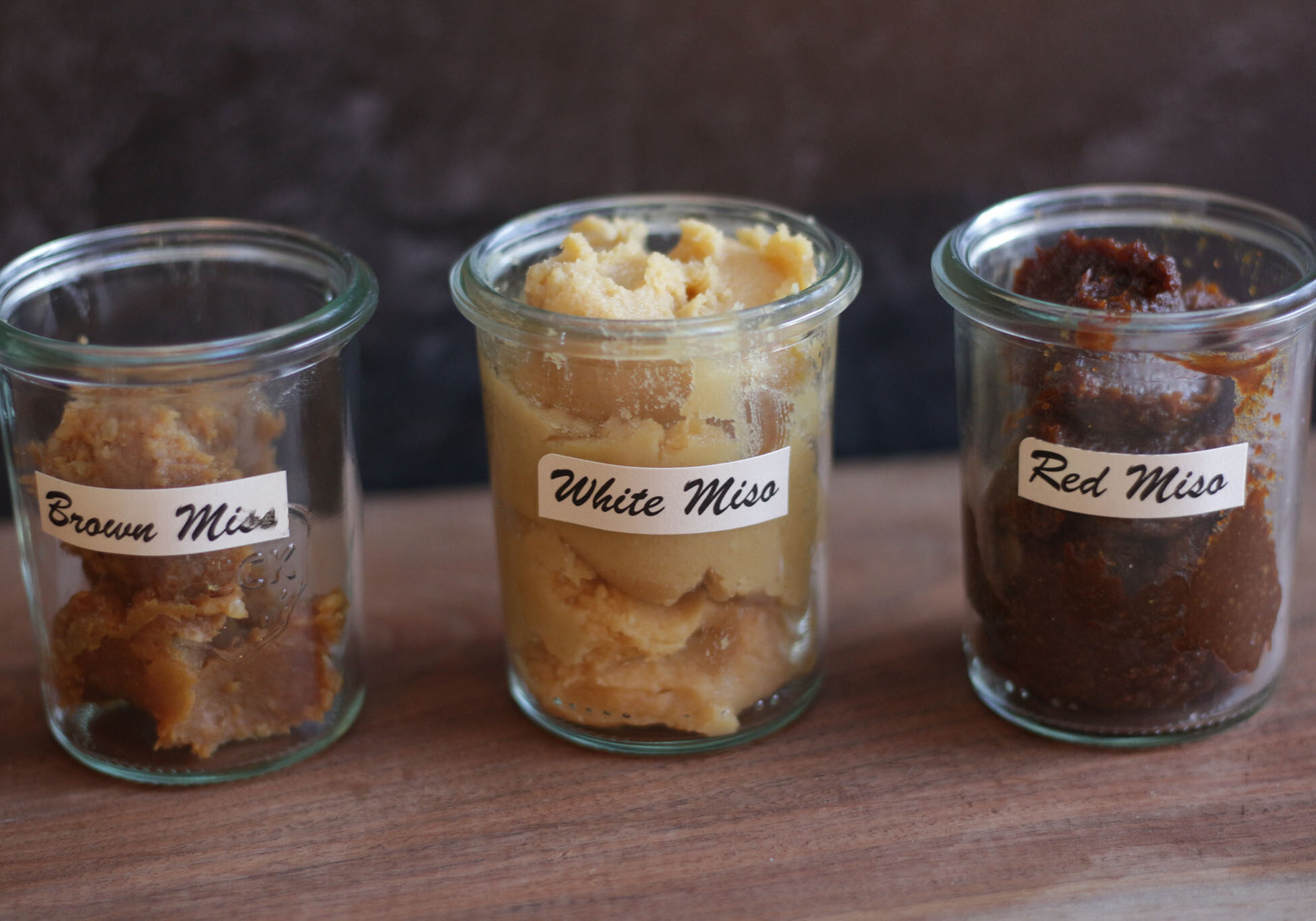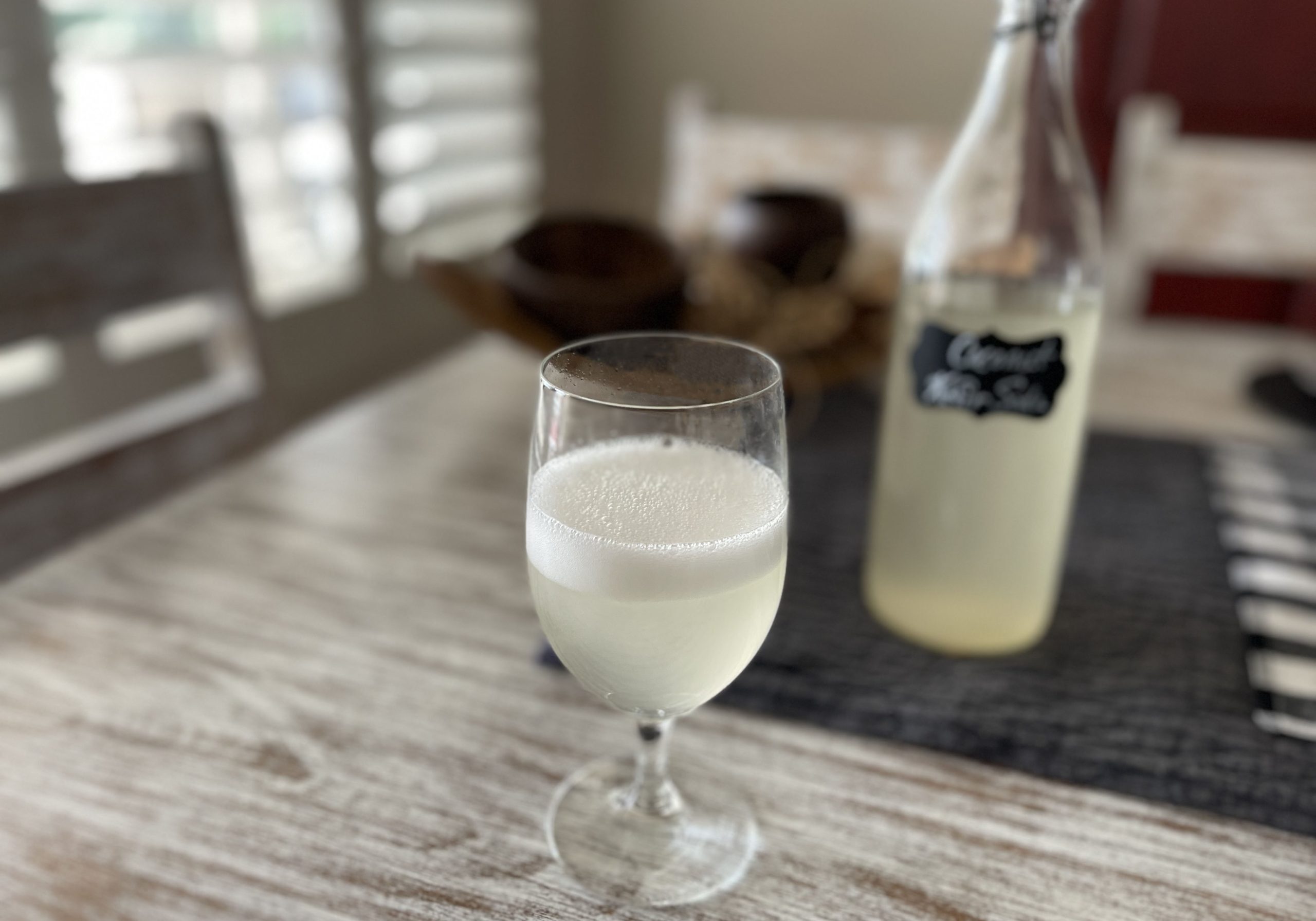
Enzymes and Your Gut — You Aren’t Just What You Eat, You’re What You Digest and Absorb
Enzymes and Cultured Foods
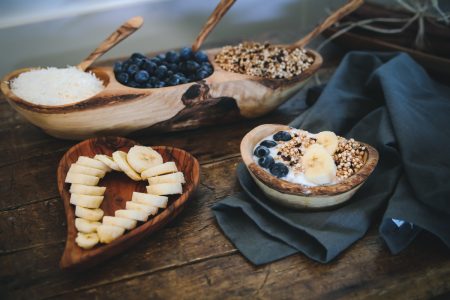
- Amylases – these break down starches (complex carbohydrates)
- Lipases – these break down fats
- Proteases and Peptidases – these break down proteins
Digestive enzymes are necessary for breaking down the food you eat into raw building blocks to fuel your body. Experiencing gas, bloating, indigestion, or constipation can all be signs of lagging enzymes.
You aren’t just what you eat - you’re what you digest and absorb
If your food is not properly digested and absorbed in your small intestines, this can lead to malnourishment because not enough nutrients are being absorbed by your body. That undigested food can cause problems as it travels down through the digestive tract. It can provide food for the “harmful” bacteria which may cause gas and bloating. This can lead to dysbiosis as the bad bacteria thrive and grow and crowd the good bacteria. If your diet isn't optimal, then different types of inflammatory undigested food that reach the large intestine may have an important impact on the balance of good and bad bacteria in the colon. This can cause all manner of problems.
All the healthy food in the world won’t do you much good if your body doesn’t have the enzymes it needs to break it down into smaller nutrients. A high amount of stress, damage to the intestinal brush border, or severe inflammatory digestive conditions such as SIBO, leaky gut, Celiac disease, or Crohn’s disease can all change your enzyme production. “Anything that’s going to drive inflammation in the gut is going to cause the brush border to be disturbed, and can impact pancreatic function as well,” says Dr. Tim Gerstmar, a Seattle-based naturopathic doctor and digestive health and autoimmune specialist.
This can range from leaky gut, to SIBO bacterial overgrowth, to food allergies. Having a low enzyme count can cause undigested proteins to pass through your gut and cause more inflammation. Low stomach acid is also linked to low enzyme production and your body naturally produces fewer enzymes as you age. 1
Digestive Enzymes in Food
 Kefir and Yogurt
Kefir and Yogurt
Kefir and yogurt contain many digestive enzymes including lipase, protease, and lactase, along with billions of probiotics. The process of fermentation allows the bacteria to digest the natural sugars (lactose) in milk and convert them into organic acids and carbon dioxide. This creates conditions that help the good bacteria to grow. But that's not all. It also adds nutrients, increased vitamins, and other beneficial compounds. If you're missing the enzyme lactase and struggle to digest milk, the good news is kefir is loaded with lactase and is also 99% lactose-free. Since kefir is considered a predigested food, it will digest with ease and help you digest other foods you eat with it.
Cultured Veggies
Fermented sauerkraut is made with the Bacillus species. This adds enzymes such as proteases, lipases, and amylases. Just a spoonful will add lots of digestive enzymes, probiotics, and increased vitamins and minerals to your gut. Cultured vegetables also help to repair the gut lining and keep pathogens at bay.
Kombucha
Kombucha has many beneficial compounds, including enzymes. As soon as we see, smell, or think about food, our stomach cells begin secreting hydrochloric acid (HCl). HCl plays an important role in protein digestion by converting pepsinogen into the enzyme pepsin. Pepsin breaks proteins down into amino acids.
HCI also helps with the absorption of carbohydrates, fats, and vitamins A and E by stimulating the release of pancreatic enzymes and bile into the small intestine. Without adequate stomach acid, food isn’t properly broken down and digested. Kombucha helps increase stomach acid production, which helps our bodies properly break down and digest our food.
Kefir Soda
This probiotic soda contains many digestive enzymes including lactase. Unlike regular kefir, which is made from cow, sheep, or goat milk, water kefir is made by combining sugar water or juice with water kefir grains. Then it's fermented and the beneficial bacteria and yeasts consume the sugar and load this drink with beneficial compounds. A few ounces with a meal will help you receive some digestion support along with fifteen to twenty different strains of probiotics.
Miso
Miso is made by fermenting beans, most typically soybeans, but you can also make it with chickpeas, lentils, and fava beans. Koji is the starter used to ferment the beans and is often mixed with rice, barley, or other grains. The mixture is allowed to ferment for 3 months to 3 years and produces an enzyme-rich food. Koji adds a variety of digestive enzymes including lactases, lipases, proteases, and amylases which improve the ability to digest and absorb foods. The process of fermenting soybeans helps you absorb more nutrients by reducing their antinutrient content. Antinutrients are compounds found naturally in foods that may hinder the absorption of nutrients by binding to them.
Fruits and other foods with enzymes
There are other foods that contain enzymes as well. Avocados, pineapple, papaya, ginger, mangos, bananas, apricots, honey and especially bee pollen are all loaded with enzymes. A diet rich in healthy food, with plenty of raw fruits and vegetables, can deliver a good supply of digestive enzymes
Digestive Enzymes — Not Antacids
Many people contact me when they're already experiencing leaky gut symptoms with gas, bloating, reflux, and chronic digestive issues. Often they need extra help to help restore balance. Cultured foods are crucial, but adding more supplemental enzymes can make a huge difference and help them get over the hurdle of digestion problems. Stress is one of the main culprits that causes inflammation and depletes you of your enzymes. Foods that are highly processed are going to shift the gut flora as well, but so does taking antacids.
So many people reach for antacids when they overeat and have reflux, gas, or bloating, but these medications can dramatically change the composition of the gut flora.2 It's so commonplace that people use these remedies for fast relief never realizing the consequences. Dr. Chris Kesser explains that taking antacids can put you at risk of serious health conditions.3
Here are the four primary consequences of acid-stopping drugs:
- Increased bacterial overgrowth
- Impaired nutrient absorption
- Decreased resistance to infection
- Increased risk of cancer and other diseases
Check out his article for more info
There have been several times in my life when I needed extra help with digestion. When I was pregnant, when I went through menopause, and when we moved. Stress and hormones were the culprits in all of these times and I was glad I had extra help. I only needed digestive enzymes for a short amount of time, but boy was I glad I had them.
I'm trying to train everybody to protect their guts. We all need help from time to time and digestive enzymes are the more natural way to go. You can get digestive enzymes at your local health food store, or Amazon.
Foods and Recipes with Enzymes
Listen To My Podcast
Having plenty of digestive enzymes is one of the keys to optimal health. Learn how to give your body what you need to absorb and break down your food into micro and macronutrients that can then be absorbed and used by your body. Listen to today's podcast to learn how.
Are you on the list?
Sign up today and I'll send you my free Getting Started Guide!
Each week I'll send you updates, tips, recipes, and more! You might even be a winner of my weekly giveaway! (starter cultures, memberships, and more!)
Come be a part of my cultured food family!

